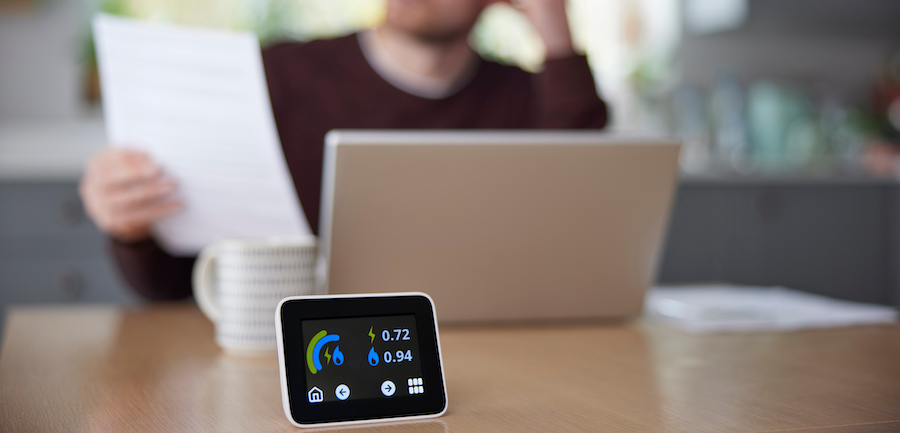Smart meter customers rewarded for smarter energy use
Several major energy suppliers are incentivising their customers with smart meters to save energy at peak times. How does it work? Let’s find out more.
We all know about the energy crisis that is engulfing the UK right now. The supply of power is low thanks to many factors, including a resurgence in demand after the pandemic and Russia’s invasion of Ukraine. Energy prices are higher than ever, so high that the UK government is stepping in with support for consumers to the tune of billions. Winter is here, and people need to heat their houses to stave off the cold. It’s a perfect storm.
One of the energy industry’s biggest fears this winter is that demand will exceed supply to such an extent that the network will not be able to cope, leading to blackouts. To alleviate this threat, several of the country’s biggest suppliers are bringing in schemes to spread out power use over the course of the day rather than having peaks and troughs. What’s more, smart meters are a vital part of these schemes.
In this article, we’ll look at these schemes in more detail, focusing on the role of the smart meter. Let’s get started.
The news
In a bid to encourage customers to reduce their power consumption at peak times, several of the UK’s biggest energy suppliers, including British Gas, E.on and EDF, have formulated schemes to incentivise smarter power use.
While each supplier’s scheme is unique, the overarching idea is that consumers will be compensated with money off their bills or with vouchers for using less energy at peak times, generally between 4pm and 7pm. Customers could earn up to £100 throughout the winter.
Currently, the companies running schemes are British Gas, E.On, EDF, Ovo, Shell, Utilita and Octopus. Bulb, So Energy and Utility Warehouse are not operating schemes. However, the National Grid and OFGEM are working with suppliers to help them start their own initiatives.
There are some drawbacks, however. Not all customers are eligible to be part of the scheme. Some suppliers, including British Gas, are only offering incentives to specially invited customers. The other proviso is that you have a smart meter which shares half-hourly data with your supplier.
Why smart meters?
Only customers with smart meters will be able to take part in their suppliers’ energy-saving schemes (if invited). They also need to have the right smart meters installed, models that transmit data back to the supplier every half hour.
This is because schemes are based on tracking customers’ usage at specific times of the day, making a distinction between peak and off-peak times. On some suppliers’ schemes, you’ll receive a notification via app or email to tell you when it’s time to reduce your energy consumption and how much to reduce it by.
Aims
Suppliers have been asked to formulate incentive schemes for power use by the National Grid Electricity System Operator (ESO). National Grid ESO is the authority in charge of keeping the UK’s homes and businesses’ power connections up and running by running the power transport network.
National Grid ESO has warned for months that this winter could be especially hard for energy suppliers responsible for keeping the power networks flowing. While blackouts are a worst-case scenario for suppliers and customers alike, the view is that it’s best to be cautious and that anything we can do to alleviate strain on the network is worth doing.
It’s important to know that it’s not just the UK that is having power supply problems. The whole of Europe is struggling right now.
Looking to the future
Throughout the winter, suppliers will evaluate how well their schemes are working and whether they have an effect. It will be interesting to know if this encouragement to customers actually averts blackouts. Of course, customers’ smart meter data will be at the centre of this analysis.
If the schemes prove to be a success, it’s something we can expect to see in the future. We can also expect other suppliers to follow suit and offer incentives to their customers too.
If you don’t have the right smart meter
Many companies are limiting the number of customers that can participate in their schemes, as it’s supposed to be an experiment. However, the only way to guarantee that you will get an invite is to have the latest type of smart meter that transmits readings every half hour.
If you don’t have this type of smart meter (or you don’t have a smart meter at all), you should talk to your supplier about getting one installed.
If you do have the correct type of smart meter but haven’t received your invite from your supplier, there are other ways you can save:
- Using less energy throughout the day will see your bills reduce, even if you don’t receive any actual money back
- Apps like Equiwatt monitor your usage and invite you to participate in energy-saving events where you can win vouchers from the likes of Amazon and John Lewis
- Switching to a ‘time of use’ tariff with your supplier can see you pay less per unit for off-peak consumption
Power resilience
We very much hope that the country can avoid blackouts this winter. If customer incentive schemes from suppliers are how we achieve it, it can only be a good idea.
It’s also great to see smart meters, which are extremely valuable but are not acknowledged as such by the public yet, at the centre of this drive for energy resilience. Let’s hope to see smart meters at the heart of more schemes like these.

